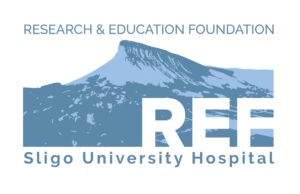Dr Laurence Roope is a Senior Researcher at the Health Economics Research Centre (HERC), part of the Nuffield Department of Population Health at the University of Oxford. He joined HERC in January 2013 after completing a PhD in Economics at the University of Manchester. His research interests lie broadly within health economics and development economics. He has particular expertise in the economics of poverty and inequality, and in applying economic principles to tackle global challenges such as antimicrobial resistance and pandemics. His academic work has been published in a variety of prestigious economics and general scientific journals, including Science, Nature Medicine and PNAS.
Dr Roope frequently engages with policy makers and the media to maximise the impact of his research. His work has informed Public Health England’s public information campaigns on appropriate antibiotic use. His work on global inequality has featured both in multiple United Nations policy documents (including two flagship United Nations Human Development Reports) and by the World Economic Forum). He has published extensively on economic aspects of COVID-19, and been regularly interviewed and quoted in the media, e.g. appearing as a guest on BBC Radio 4’s ‘Today Programme’ and ‘How to Vaccinate the World’.
Dr Roope has worked as a consultant for the United Nations University World Institute for Development Economics Research (UNU-WIDER), and is an External Associate at the Global Development Institute (GDI, University of Manchester). Prior to working in academia he was a professional econometrician in the private sector.
Abstract of presentation: Global public opinion on COVID-19 vaccine allocation, donations, mandates and pandemic preparedness: Evidence from the CANDOUR study
How best to allocate scarce COVID-19 vaccines is an ongoing challenge to governments and the international community. Beyond who should be first-in-line, many countries are deciding whether to make vaccination mandatory, and some have considered whether to allow private purchase of vaccines. Globally, a critical concern is the slow pace of vaccination in low income countries (LIC). While many high-income countries (HIC) have now vaccinated a substantial proportion of their population, many LIC may need to wait until at least 2022 before even the most vulnerable 20% are vaccinated. Beyond ethical considerations, some redistribution of doses would reduce the risk of the emergence and spread of new variants and benefit the economy. However, the willingness of HIC governments to donate vaccine doses is likely to depend on public support.
There is limited evidence on the views of the general public on these issues. Here we outline findings from the first wave of the CANDOUR study, a survey of 15,536 adults in 13 countries. There was a consistent view that priority for scarce vaccines should be given to health workers and those at high risk but also, to a broad range of key workers and those with lower incomes. The public favoured allocating COVID-19 vaccines solely via government programs but was polarized in some countries on mandatory vaccinations. In a subsample of seven HIC, there was strong broad-based support for donating COVID vaccine stockpiles to LIC. There was also strong support and willingness-to-pay for increased future spending on medical research and pandemic prevention measures.
